Best movies like Quo Vadis?
A unique, carefully handpicked, selection of the best movies like Quo Vadis? Starring Amleto Novelli, Gustavo Serena, Bruto Castellani, Amelia Cattaneo, and more. If you liked Quo Vadis? then you may also like: Nero, Nero, Quo Vadis?, Quo Vadis, Quo Vadis and many more popular movies featured on this list. You can further filter the list even more or get a random selection from the list of similar movies, to make your selection even easier.
During the latter years of the reign of the tyrannical Roman emperor Nero, Marcus Vinicius, one of Nero's officers, falls in love with a young Christian named Lygia, attempting to enslave her. Lygia's protector, the noble and burly Ursus, works to save her from Vinicius' clutches. Pursuing Lygia, Vinicius finds himself at a catacomb prayer meeting led by the apostle Peter and finds his conscience stirring-- just as Nero orders Rome burned. A landmark in epic film, Enrico Guazzoni’s grand-scale masterpiece laid the foundations for what colossal Italian spectacles would become. The film had tremendous influence on Giovanni Pastrone’s Cabiria (1914) and D.W. Griffith’s Intolerance (1916).
You may filter the list of movies on this page for a more refined, personalized selection of movies.
Still not sure what to watch click the recommend buttun below to get a movie recommendation selected from all the movies on this list
Nero
As a young boy, future emperor Nero witnesses the mad Emperor Caligula kill his father and exile his mother. While in exile in the pontine islands, Agrippina, his mother, sees a vision telling her that her son can become emperor, but she will have to die first. She accepts the proposal. Back in Rome, Nero, now being raised by emperor Claudius after Caligula's death, Agrippina returns. She poisons Claudius' food and Nero becomes emperor. At first, Nero cuts taxes and introduces successful programs and invades Brittania. Soon he meets a beautiful slave named Claudia Acte, and marries her, throwing off his engagement with Claudius' daughter, Claudia Octavia, telling her she can marry someone she will be happy with. Heartbroken, she arrives at an island and kills herself. Nero enjoys being married to Claudia Acte, but soon he gradually goes mad with power and sets fire to Rome.
Quo Vadis?
"The Roman Banquet, the golden glories, the unrivaled luxuries, the wine, the dance, the song, the beautiful women, the sumptuous splendors that taxed a barbaric world for a night of feasting and revel-- Re-created for your entertainment in the most colossal drama produced", reads an ad in the Daily Argus of New York. Unione Cinematografica Italiana's lavish production of the oft-told tale stars Emil Jannings as Nero.
Quo Vadis
Ancient Rome, during the time of Emperor Nero. Vinicius, a young patrician, falls in love with the beautiful Lygia, the daughter of a Barbarian commander who was killed in battle, and wants her for his concubine. For Lygia, a Christian, being a pagan's concubine is a severe sin and disgrace. However, when Vinicius is wounded, Lygia cares for him, and starts to reciprocate his feelings. Vinicius, in return, becomes interested in Christian learning and asks Apostle Peter to teach him. In the meantime, Emperor Nero accuses Christians of having started a great fire in Rome. He encourages the imprisonment, torture and murder of his Christian subjects.
The Robe
Marcellus is a tribune in the time of Christ. He is in charge of the group that is assigned to crucify Jesus. Drunk, he wins Jesus' homespun robe after the crucifixion. He is tormented by nightmares and delusions after the event. Hoping to find a way to live with what he has done, and still not believing in Jesus, he returns to Palestine to try and learn what he can of the man he killed.
The Fight for Rome
A Roman noble, Cethegus, tries to start a war, setting the Ostrogoths and their Queen, Amalasuntha, against the Byzantine Emperor Justinian; Cethegus wants to swoop in after they have destroyed each other and create a new Roman Empire from their combined kingdoms; however, he does not factor into his plans the vagaries of love and the personal integrity of the people in both kingdoms.
Barabbas
Epic account of the thief Barabbas, who was pardoned for his crimes and spared crucifixion when Pilate offered the Israelites a choice to pardon Barabbas or Jesus. Struggling with his spirituality, Barabbas goes through many ordeals leading him to the gladiatorial arena, where he tries to win his freedom and confront his inner demons, ultimately becoming a follower of the man who was crucified in his place.
Ben Hur
During the first century A.D., Judah Ben-Hur is a young Hebrew prince who is thrown into slavery by the Romans after a tragic accident. He sets out to win his way back to his home on a heroic journey of discovery. Judah's love for a beautiful slave girl is threatened by the bitter conflict dividing two former friends, and his triumph is set against the backdrop of the historic struggle between a captive people and a mighty empire.
Cabiria
Young Cabiria is kidnapped by pirates and sold as a slave in Carthage. Just as she's to be sacrificed to Moloch, Cabiria is rescued by Fulvius Axilla, a good-hearted Roman spy, and his powerful slave, Maciste. The trio are broken up as Cabiria is entrusted to a woman of noble birth. With Cabiria's fate unknown, Maciste punished for his heroism, and Fulvius sent away to fight for Rome, is there any hope of our heroes reuniting?
The Last Temptation of Christ
Jesus, a humble Judean carpenter beginning to see that he is the son of God, is drawn into revolutionary action against the Roman occupiers by Judas -- despite his protestations that love, not violence, is the path to salvation. The burden of being the savior of mankind torments Jesus throughout his life, leading him to doubt.
Fabiola
In ancient Rome a love story blossoms between Fabiola, daughter of a senator, and Rhual, a Gallic gladiator. After Fabiola's father is killed, the Romans blame the Christians and the persecution begins. Rhual confesses to being a Christian, is accused of the murder and sentenced to fight to the death in the arena.
The Sign of the Cross
After burning Rome, Emperor Nero decides to blame the Christians, and issues the edict that they are all to be caught and sent to the arena. Two old Christians are caught, and about to be hauled off, when Marcus, the highest military official in Rome, comes upon them. When he sees their stepdaughter Mercia, he instantly falls in love with her and frees them. Marcus pursues Mercia, which gets him into trouble with Emperor (for being easy on Christians) and with the Empress, who loves him and is jealous.
Paul, Apostle of Christ
Risking his life, Luke ventures to Rome to visit Paul -- the apostle who's bound in chains and held captive in Nero's darkest and bleakest prison cell. Haunted by the shadows of his past misdeeds, Paul wonders if he's been forgotten as he awaits his grisly execution. Before Paul's death, Luke resolves to write another book that details the birth of what will come to be known as the church.
Mary Magdalene
In the first century, free-spirited Mary Magdalene flees the marriage her family has arranged for her, finding refuge and a sense of purpose in a radical new movement led by the charismatic, rabble-rousing preacher named Jesus.
Messalina
In ancient Rome, tyrannical Emperor Caligula is assassinated through the machinations of Messalina. She then makes a conquest of Marcus, who forces the Senate to name her husband, Claudius, as emperor. Messalina's wicked ways continue when she falls in love with Ennio, a slave. Ennio is also loved by Egyptian princess Mirit, but he loves neither of them, preferring the company of Ela, a Greek slave.
Salome
In the reign of emperor Tiberius, Gallilean prophet John the Baptist preaches against King Herod and Queen Herodias. The latter wants John dead, but Herod fears to harm him due to a prophecy. Enter beautiful Princess Salome, Herod's long-absent stepdaughter. Herodias sees the king's dawning lust for Salome as her means of bending the king to her will. But Salome and her lover Claudius are (contrary to Scripture) nearing conversion to the new religion. And the famous climactic dance turns out to have unexpected implications...
The Degenerates
A series of bawdy and satirical episodes written during the reign of the emperor Nero and set in imperial Rome. Like the more famous version made by Federico Fellini, an adaptation of Petronius' Satyricon.
Sign of the Pagan
Roman centurion Marcian is captured by Attila the Hun en route to Constantinople, but escapes. On arrival, he finds the eastern Roman emperor Theodosius plotting with Attila to look the other way while the latter marches against Rome. But Marcian gains the favor of Pulcheria, lovely sister of Theodosius, who favors a united Empire.
Apostle Peter and the Last Supper
The film portrays Saint Peter reflecting on his time with Jesus and his fellow Apostles during his final imprisonment in Rome. In particular, Peter attempts to convert one of his jailers, Martinian, by relating the life, teachings, and sacrifice of Jesus.
Constantine and the Cross
Constantin is fighting against Barbarians with his father when he is called to Rome. In his way to Rome, he falls in an ambush planned by Maxence, who wants to become emperor.
Massacre in the Black Forest
In the first half of the first century A.D., the Teutonic tribes, led by Arminius The Terrible, rebel against the cruel and conquering Roman Empire. In raging torments and blood curdling battles, the barbarian tribes and Roman Legions fight a war of attrition, so brutal and terrible that Arminius becomes a legend throughout the empire. Only Augustus, Emperor of Rome is evil and treacherous enough to enslave the Teuton barbarian and halt his murderous uprisings.
Challenge of the Gladiator
Treacherous Roman senator Lucius Quintilius plans a secret journey into Thrace to recover a legendary treasure. He is accompanied by his daughter Livia posing as a Christian slave girl, his cruel henchman Commodio, and Terenzius, an ex-gladiator and Nero look-alike who fools the local Thracians into believing he is the real Emperor. But Lucius's plans are thwarted by Spartacus and his band of rebels who succeed in capturing the treasure for Thrace. When news arrives from Rome that the real Nero has died, local Roman governor Consul Metellus joins forces with Spartacus to defeat the traitors.
Poppea: A Prostitute in Service of the Emperor
Ottone and Savio work hard to keep each other out of trouble with the Roman Centurions while scraping together food and drink with various scams. Emperor Nero's wife, the beautiful Poppea, takes an interest in Ottone, who after a short stint as a gladiator gets a region to manage and an army of his own to command, all the while assisted by his best friend and partner in crime Savio.
Caligula with Mary Beard
What is true and what is false in the hideous stories spread about the controversial figure of the Roman emperor Gaius Julius Caesar Augustus Germanicus (12-41), nicknamed Caligula? Professor Mary Beard explains what is accurate and what is mythical in the historical accounts that portray him as an unbalanced despot. Was he a sadistic tyrant, as Roman historians have told, or perhaps the truth about him was manipulated because of political interests?
Brûlez Rome !
At the time of Nero, the Empire is at the height of its power, but Rome, where a million inhabitants live, is afraid of its enemies, of foreigners, of barbarians. Rome is afraid of the Tyrant and of its own power. And all these fears seem to crystallize in that of fire, more than anything else feared in this megalopolis that so often catches fire. In 64 A.D. the most terrible fire that the city has ever known broke out. It is said that it was set on the orders of Nero, in order to overwhelm the Christians who were accused of it. The watchmen, Celer and Theseus, intervene at the risk of their lives. This fictional documentary tells the story of the adventures of these two "firemen" in Rome during the Empire. An astonishing journey through time, the story of the life of men: customs, family, lifestyle, politics, education, leisure.
The Apocalypse
While Emperor Domitian persecutes the Christians, the aged apostle John has prophetic visions.
Saint Philip Neri I Prefer Heaven
An epic feature film on the famous "Apostle of Rome" and great friend of youth in the 16th century. One of the most popular saints of all time, St. Philip Neri was widely known for his great charity, deep prayer life, and tremendous humor. Hoping to join St. Ignatius of Loyola's new order of Jesuits and be a missionary to India, Philip was instead guided by Providence to seek out the poor and abandoned youth of Rome to catechize them in the faith and help them find a better life. He became the founder of the religious congregation, the Oratory, that worked with the youth and also labored to re-evangelize a decadent Rome.
The Apostle Peter: Redemption
Tormented by his denial of Christ, Peter spent his life attempting to atone for his failures. Now as he faces certain death at the hand of Nero, will he falter again, his weakness betray him or will he rise up triumphant in his final moment?
Polycarp
Anna, a young slave girl, is rescued and adopted by Christians in 2ND Century Smyrna, and befriended by their aged bishop, Polycarp. As Anna is taught by Polycarp and her new family, she struggles to reconcile her beliefs with those of the Christians. When the Roman proconsul demands that all citizens worship Caesar to show their allegiance to Rome, Polycarp and the Christians must find courage to stand for their faith against the growing threat of persecution. Anna is forced to come to grips with the truth and choose whom she is willing to live, and die for.
La Clemenza Di Tito
Mozart's La Clemenza Di Tito was originally commissioned to celebrate the coronation of the Emperor Leopold II as King of Bohemia in 1791. This rarely-seen masterpiece was Mozart's last opera. Nicholas Hytner's elegant staging for the Glyndebourne Festival Opera sheds new light on the compelling story of passion that overrides loyalty and integrity that is tested to the extreme.
Saint Paul
Paul's epistles covering his conversion from Saul of Tarsus to his ministry to the Gentiles.
Fire Over Rome
Marcus Valerius, a young consul, is assigned the mission to assist Menecrate, the leader of the Pretorian Guard, in the arrest and execution of as many Christians as possible. While raiding the Catacombs he has the surprise to find among the Christians the woman he loves, Giulia, who has been converted secretly to the banned religion. He helps her to escape and trouble soon follows. Stripped of his rank and arrested for defending the rebels he is condemned to fight as a gladiator...

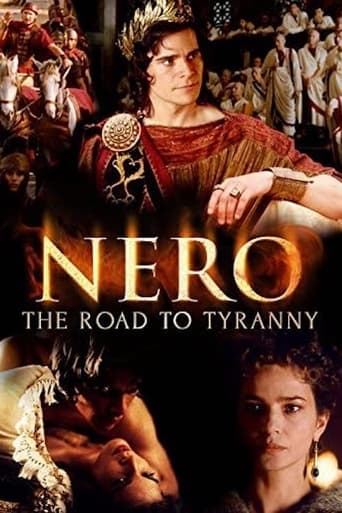

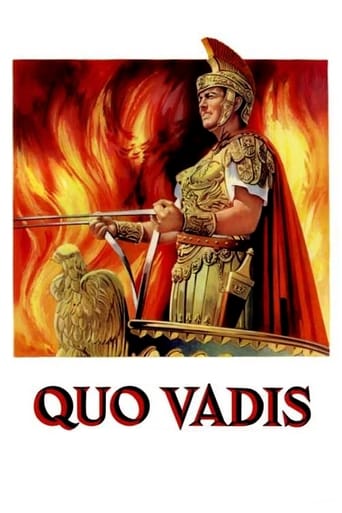

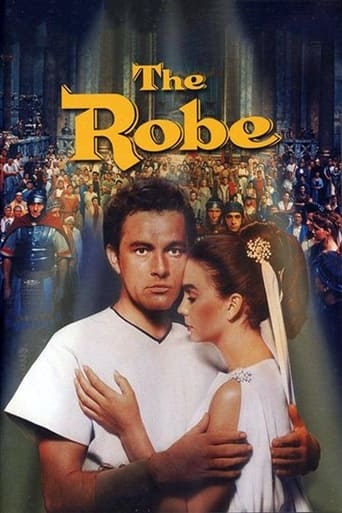









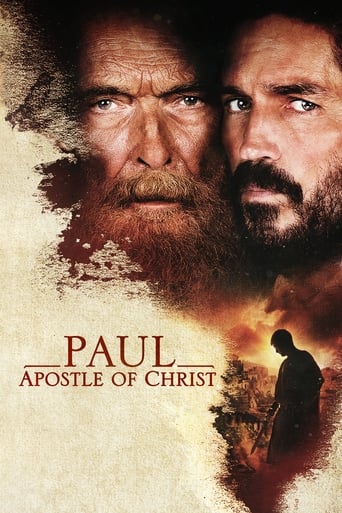






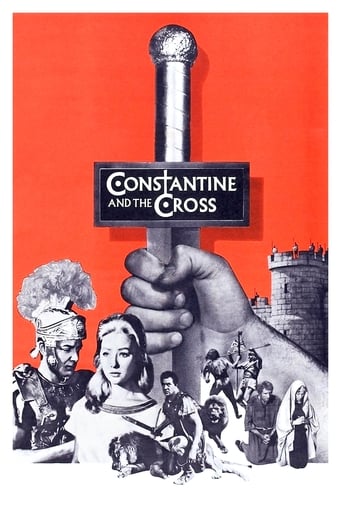






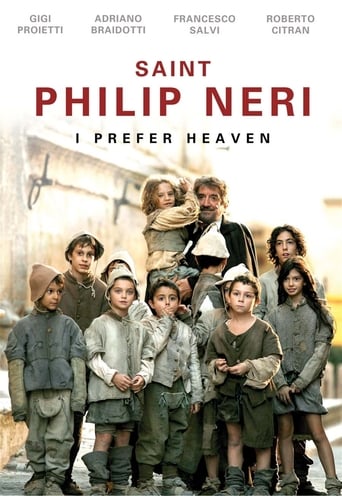
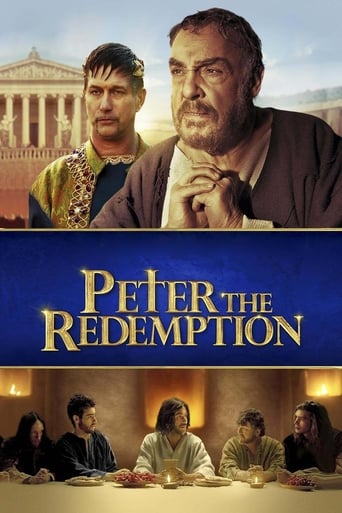



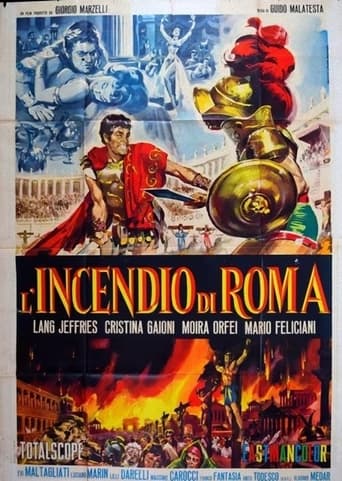



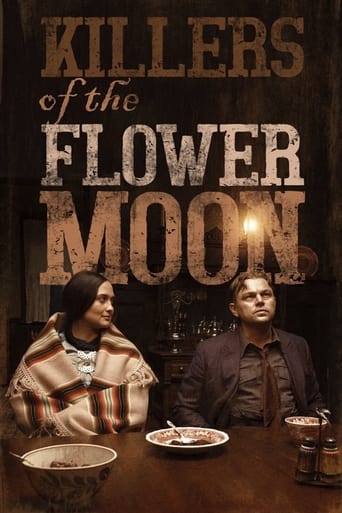


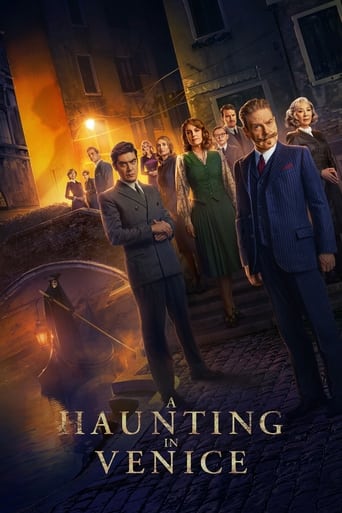





Nero
Biography portraying the life of the Roman Emperor Nero.